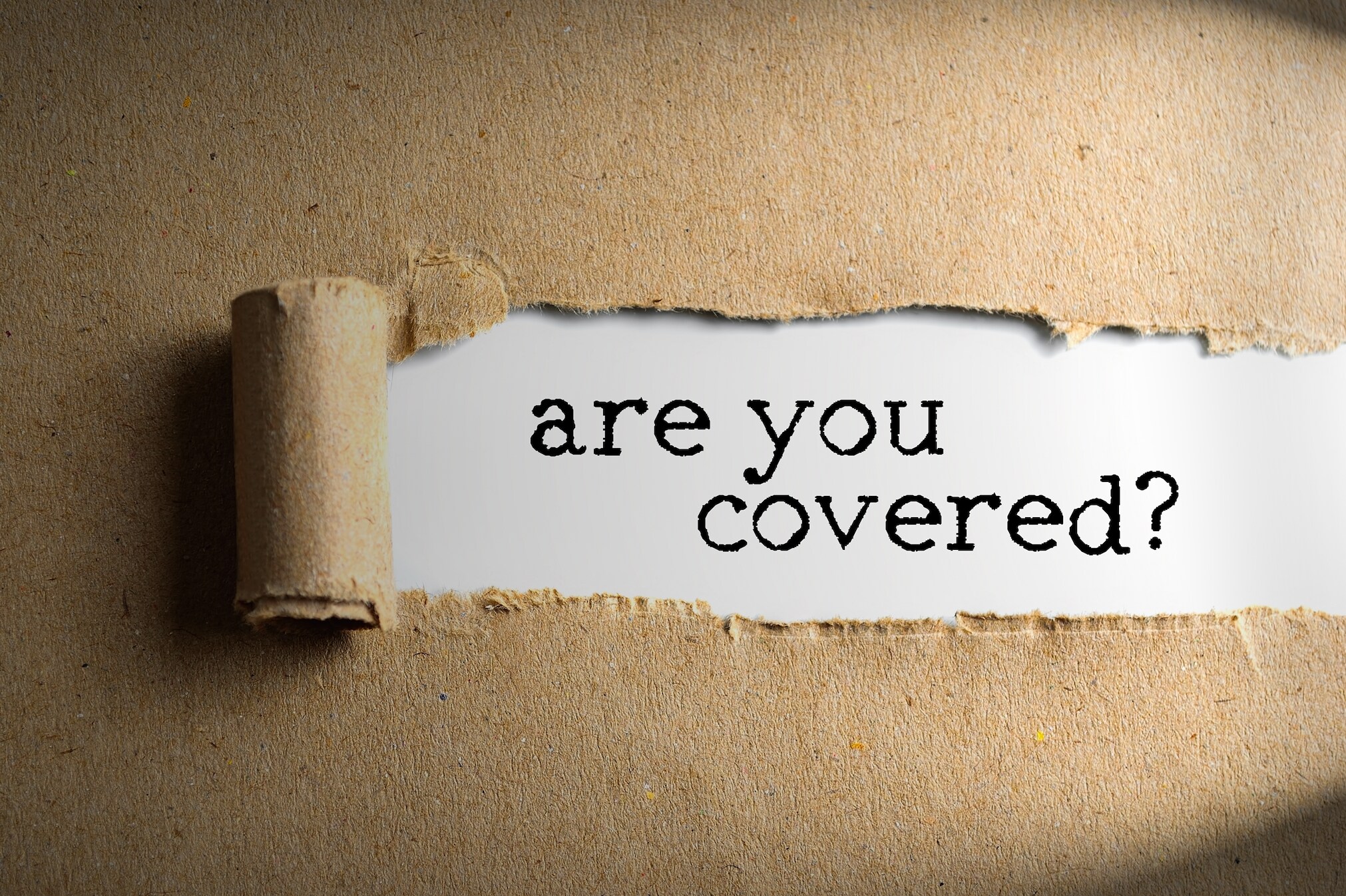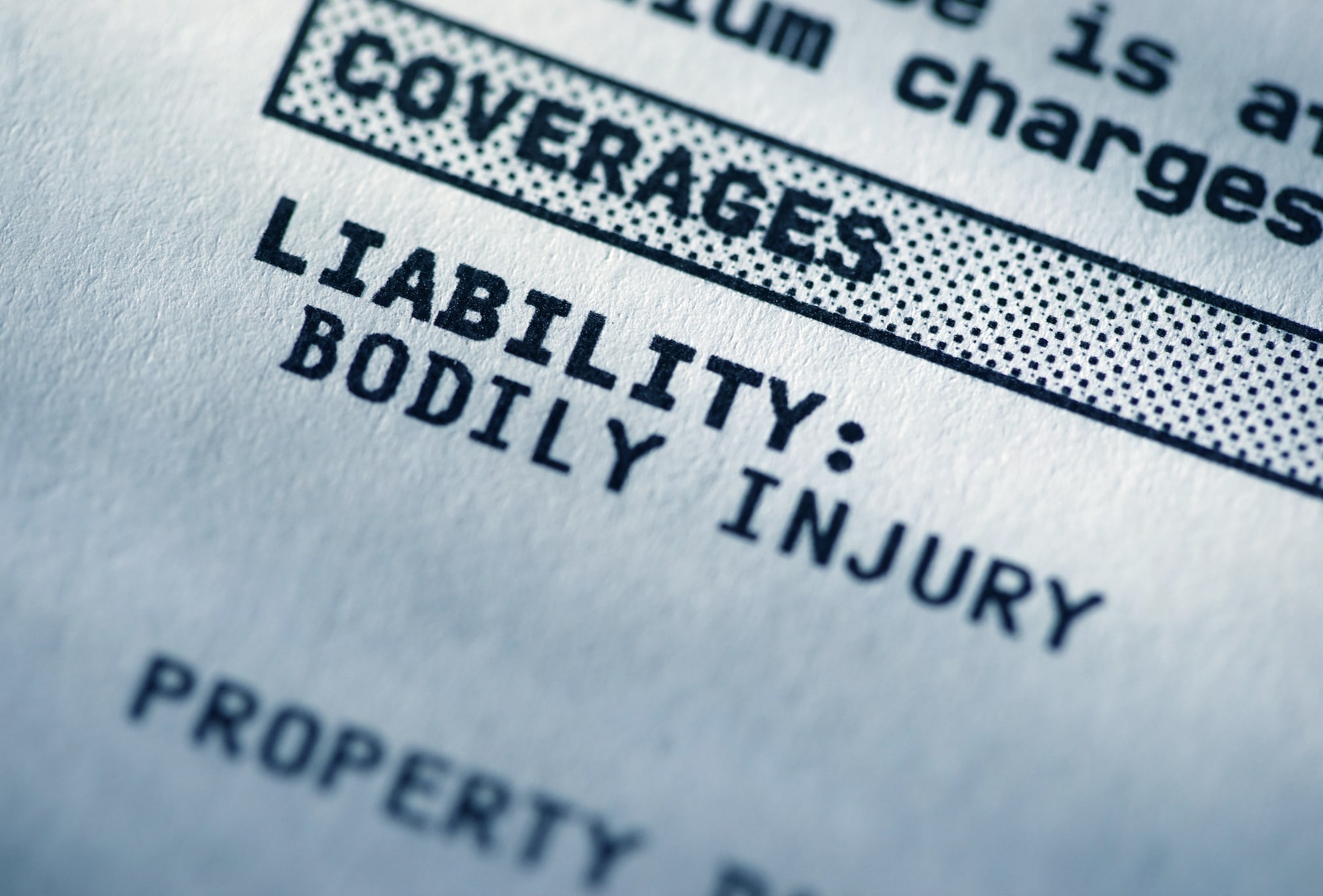Liability insurance is the single most important type of car insurance you can have and here's why. Imagine you are driving down the street without a care in the world. You swerve to avoid a pothole, and crash into the side of a vehicle next to you. Since you caused this accident, you are responsible for the damages to the car you hit and to any people inside that car. In other words, you are personally liable and at risk for the cost of any repairs to the smashed vehicle and any medical bills for its driver and passengers. That could cost you many thousands of dollars out of pocket, but if you have auto liability insurance, you won't have to pay. Your liability insurance pays for any damages to people, vehicles, or property that you caused. In most states, you must by law carry liability insurance if you drive a car.
What is Liability Insurance

Why Liability Insurance is Mandatory
Auto liability insurance covers two types of costs; bodily injury and property damage. Bodily injury coverage pays for the other person's medical bills if they got injured in an accident that you caused. This includes other drivers, passengers and pedestrians who might have gotten injured. In addition to medical coverage, the insurance pays for things like lost wages if that person can't work due to their injuries, legal fees if that person sues you, and even funeral costs if that person or passengers die as a result of the accident.
Property damage coverage handles the cost of repairing or replacing the vehicle you crashed into. It also covers other property such as guard rails, buildings, telephone poles, mailboxes, or anything else you crashed into.
If you are found "at fault" for a car accident, your liability insurance covers the other person's expenses but not yours. If your car got banged up or you got whiplash from the accident, liability insurance won't cover your car repairs, body work, or your own medical bills. That's where health insurance or auto collision insurance comes to save the day. That's why it is very important to have the right kinds of car insurance to cover yourself, your family, and those you might accidentally harm in a car accident.
How Much Liability Insurance Do I Need?
It's important to know that liability insurance will not cover all expenses. There are coverage limits and these place a cap on how much the insurance company will pay after you have covered your deductible amount. Anything over the coverage limit will have to be paid by you out of your own pocket. So, how much insurance do you need?

A lot of people get the least amount of auto liability insurance required by law. Sometimes, that's enough. The average cost of property damage to the other car for repairs is usually a few thousand dollars. But the cost of damage for physical injury to the other driver or passengers could be a whole lot more. And what if you are involved in a serious collision that totals a new car? Your state's minimum for auto liability insurance will not be enough to replace it. Plus, not all physical injuries heal. What if you cause an accident that disables someone for life? Expenses to care for the injured could be astronomical and lead to your financial ruin. That's why many car insurance companies suggest that you carry at least $500,000 in liability insurance.
Auto Liability Coverage at a Glance
While auto liability insurance is mandatory in most states, it is also the cheapest form of car insurance. The average cost as of this writing is around $650 per year. Looking at your insurance coverage, liability insurance is represented by three numbers. For instance, you might see the amounts as 25/50/25. That means you have $25,000 worth of bodily injury insurance per person, $50,000 worth of bodily injury per accident, and $25,000 worth of property damage per accident. Your personal liability coverage limit is shown as anywhere from $100,000 to $500,000. It is generally advised that you pick a coverage limit that exceeds your personal total net worth.
Comp and Collision
Other than the mandatory car liability insurance you are required to have, you'll also want to have coverage to repair your own car and cover your personal injury in the event of an accident. Collision insurance pays to repair your car due to an accident and comprehensive insurance pays for damage to your vehicle from things like fire, hail, flood, or if it is stolen or vandalized. Comp and collision also comes in handy if a tree or a boulder falls on your car.
Your automobile liability coverage policy covers the following while you are driving:
- Cost of injury to others involved in an accident that you caused
- Damage to the other vehicle or vehicles
- Damage to someone else's physical property
- Legal expenses for accident-caused lawsuits
Expenses covered by liability insurance that pays for property damage as well as bodily injury to others involved in an accident that you caused include hospital and medical bills, lost wages, pain and suffering, rehabilitation, and in-home healthcare to those you have injured.
Personal Injury
Also known as "No Fault insurance", personal injury (PIP) insurance covers your medical expenses no matter who is at fault in an auto accident. It may also cover lost wages due to an accident. If you and your family members are covered by health insurance, the lowest legally required PIP insurance may be enough. Ask your insurance agent how much personal injury insurance is required in your state as well your state's required limits for liability insurance.


